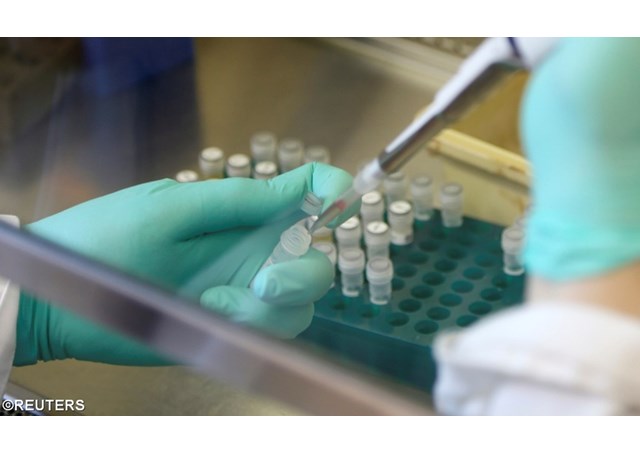
Vatican Regenerative Medicine conference Day 2

(Vatican Radio) The body can work as its own “pharmacy” with its own tool kit to heal itself – that’s one of the revolutionary concepts to come out of a Vatican conference on regenerative medicine and its cultural impact on society.
On day two of the three day conference organized by the Pontifical Council for Culture and the Stem For Life Foundation, researchers from some of the world’s leading cancer institutes presented their ground-breaking technologies in immunotherapy and expressed high hopes that a cure for the all-too-often deadly disease may be just around the corner.
Need for prevention, access and affordability
U.S. Vice President Joe Biden, who lost his son to cancer, addressed participants saying his son’s doctors told him that just in the last 4-5 years, cancer research has reached a turning point and that for the first time in history, many disciplines are working together to bring a cure. Echoing the call of Pope Francis, he said the tens of thousands of cases of cancer need to be prevented, and patients need access to affordable treatment. Fewer than 5% of patients end up in clinical trials.
His voice rising with emotion, he challenged the scientists and doctors to share their research and data with each other: “Why do you wait? Do it now!”
Many of the researchers have begun to do just that thanks to a new approach among donors and philanthropists who are encouraging them to work in teams and share the data they gather. Many, as we heard Friday, are already seeing success with immunotherapy - using the body’s own immune system to attack malignant cells - as well as with stem cells and combined therapies to treat cancer. Work is also underway to create and test personalized, patient-specific vaccines that hold the promise of preventing tumors from ever developing.
Dr. Robin Smith, President of the Stem For Life Foundation, spoke to Vatican Radio’s Tracey McClure about the interest in the Vatican meeting…
“Really it’s important for us to search for the cures and help bring solutions to people who are suffering around the world and we’re starting to see everyone really focusing on that,” says Smith.
Over the last five years, results in cancer trials have been “amazing”
“Immunotherapy, the way that you can take your immune system and educate it to kill cancer cells or to stop being over-active and killing good tissue” are just some of the exciting advances to come to the fore, Smith explains. “We are learning more about how our body acts and we are learning more how we are able to really use what we have, what God has given us, to influence our health and cells that are damaged along the way.”
A cure for cancer is on the way, need for speedy regulatory approval
“A cure is on the way,” says Smith. “More effective therapies – not just treating symptoms but actually treating the underlying cause of their disease - is underway. It’s just a matter of time and we have to band together to get the regulatory bodies focused on getting these therapies approved and into the clinic and to the patients who need them.
Some countries, like Japan, have been able to speed up the regulatory process.
“They’ve changed some legislation – if they know [the therapy] is safe and it shows a sign of efficacy – to allow patients to get the therapy while it continues along the development program for final approval.” “So we all need to take a look at that and figure out how to make [the process] quicker. Maybe [the answer is] it’s not as many patients because these trials are so costly.” Development can take up to 10-15 years and costs can be upwards of US$ 500 million. “And for people who are sick and suffering through their lifetime, that’s too long.”
Pope Francis’ words to participants, Smith says, offered a very “consistent” message.
“It’s the Year of Mercy, he’s focused on helping people, people’s needs, the focus on children, and you know, the fact that you have rare diseases that affect very few people – people aren’t focused on this. It’s not economically feasible to come up with the therapies to treat those diseases as they take so long and cost so much. So from a corporation point of view, it’s very difficult. And [the Pope’s] point is that we need to focus: someone needs to get out there and realize that there are many millions of people with rare diseases and we have to look for solutions and people aren’t doing that right now and he wants the world to come together and focus on those people who need advocates and who need people to really push on their behalf.”
To find out more about the conference:
#unitetocure and go to the website http://www.stemforlifefoundation.com/
Newsletter: https://www.stemforlife.org/wp-content/uploads/2012/11/SFL_Newsletter_FALL12.pdf
| All the contents on this site are copyrighted ©. |


